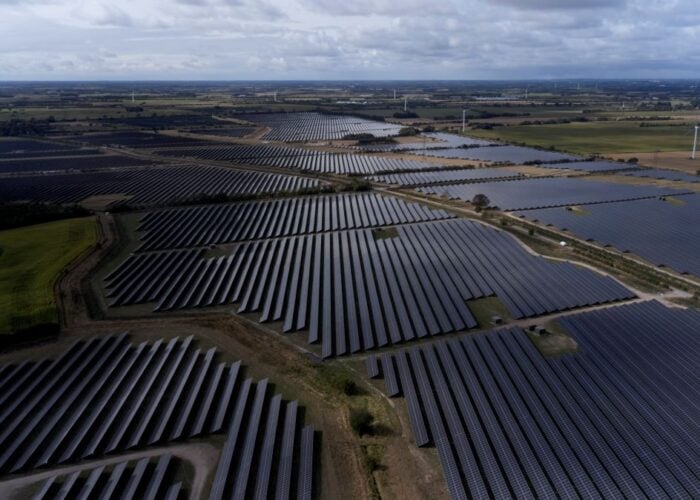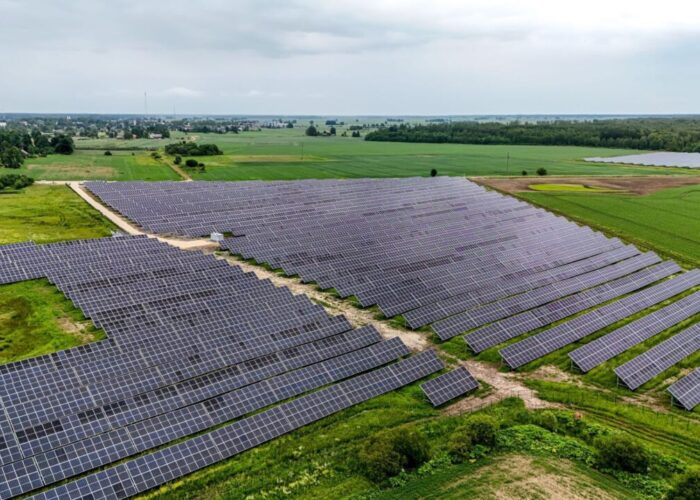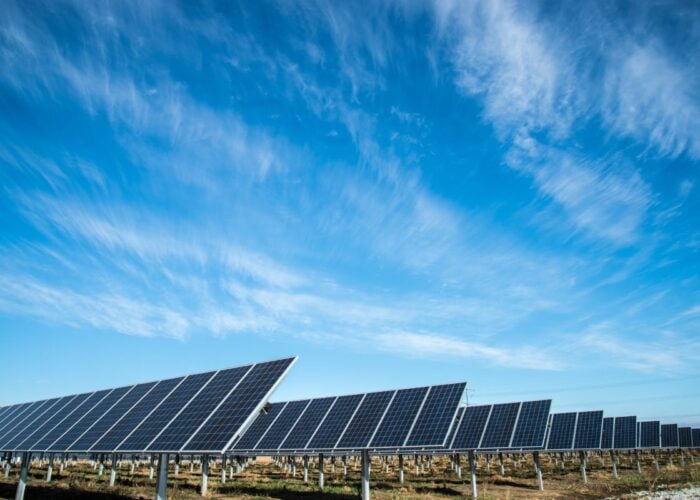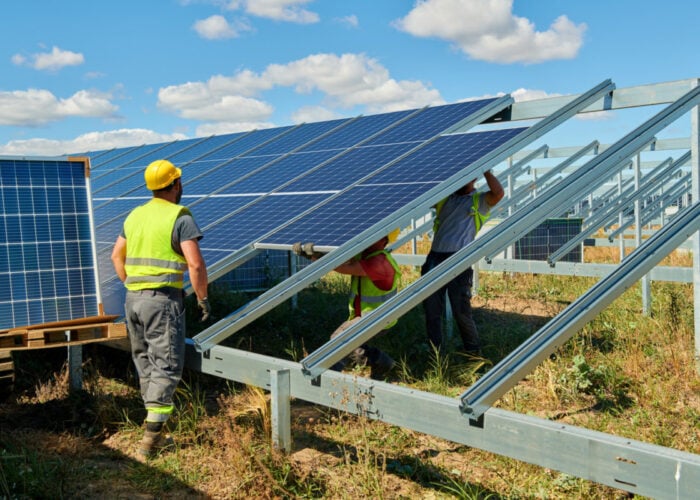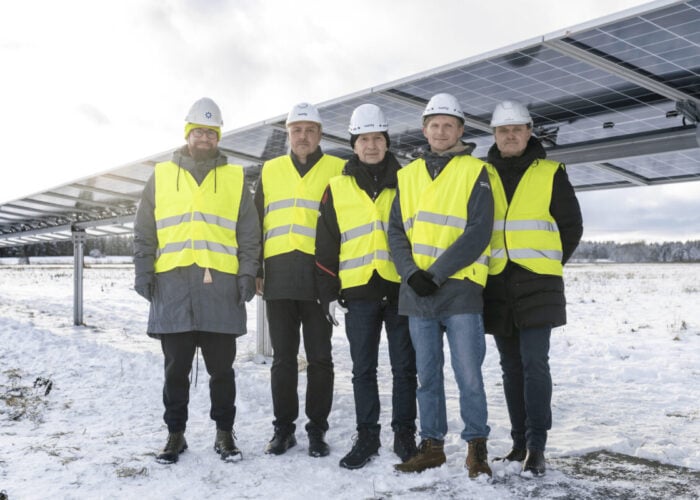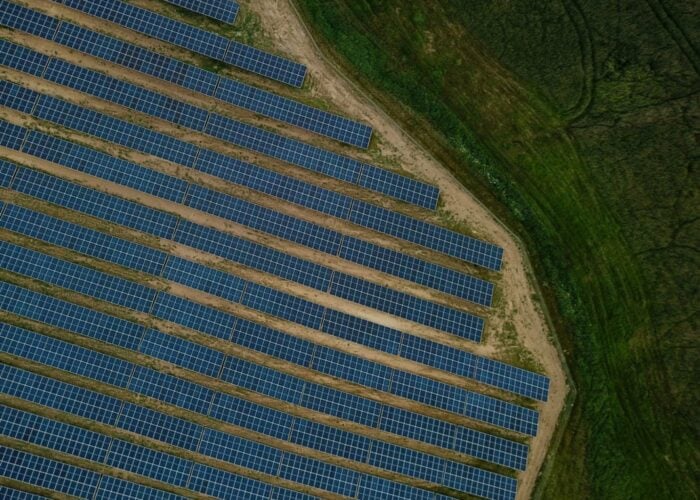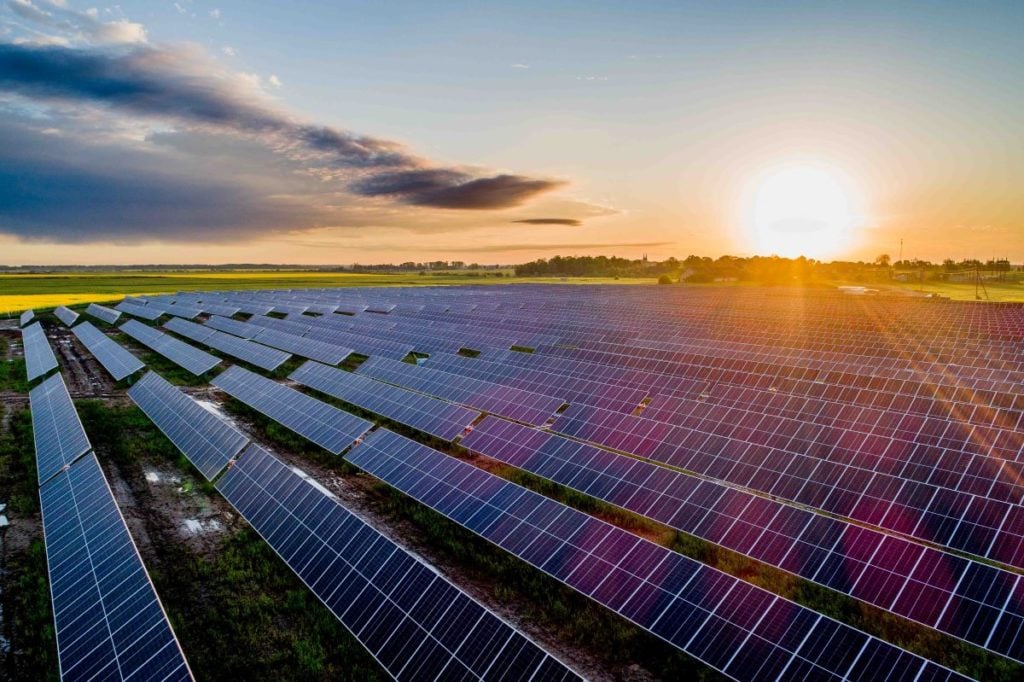
Even though Lithuanian renewables developer Green Genius first entered into more mature European markets such as Spain and Italy due to their better solar irradiation, in recent weeks it announced several PV projects in eastern Europe, with some of them in the Baltics.
Lithuania was first in line as the country modified some of its regulations – with the removal of bureaucracy and fewer restrictions on solar PV – and changes in the power markets made it interesting to enter the market, according to Simonas Šileikis, head of solar business at Green Genius.
Unlock unlimited access for 12 whole months of distinctive global analysis
Photovoltaics International is now included.
- Regular insight and analysis of the industry’s biggest developments
- In-depth interviews with the industry’s leading figures
- Unlimited digital access to the PV Tech Power journal catalogue
- Unlimited digital access to the Photovoltaics International journal catalogue
- Access to more than 1,000 technical papers
- Discounts on Solar Media’s portfolio of events, in-person and virtual
“Lithuania was a hot market since two years ago. It was obvious that this market was very attractive mainly because of the speed of the development compared to mature markets like Italy or Spain,” says Šileikis.
Another reason for both Lithuania and Latvia being attractive for the developer is the difference in getting a project completed in the Baltics compared with solar markets such as Spain or Italy, according to Šileikis.
“In Lithuania, the development process from the signing of land to the energised power plant was about 18 months. While in Italy and Spain, we are talking about the development from the signing of lands to the full authorisation only, not even talking about the construction, it takes about four years.”
As the market starts to grow and more solar projects are being developed in Lithuania, bottlenecks more common in saturated markets have started to arise with grid operators, regulator bodies or authorities being “flooded” with project documentation. Despite that, reaching commercial operation in a solar plant remains faster than in southern European countries and could now take up to two years.
The long process of securing permits for solar projects is an issue that the EU is looking to address with a new policy aimed at accelerating the permitting process for PV across the continent as the REPowerEU targets for 400GWdc of solar PV by 2025 before reaching 740GW at the end of the decade.
“It’s really obvious that markets like Lithuania, Latvia or Estonia, as they are very small countries, they are very small markets too, and reaching the saturation of the market happens very fast,” says Šileikis.
Even though Lithuania and Latvia are smaller markets – Green Genius’ recent Latvia announcement of a 100MW solar PV project would more than double the country’s cumulative installed capacity (67MW) as of 2022, according to data from trade body SolarPower Europe – the fast process of reaching commercial operation of its projects made it also more attractive for financial entities to fund the projects.
“One of the reasons this region became more attractive for the financing bodies, is what I have mentioned also about the speed of the realisation of the investment itself. One thing is to wait for the project for four to six years to be realised, another story is when you can really employ your funds in two or max three years.”
The company’s long-standing relations with financing partners in previous projects in Spain and Italy gave Green Genius the trust and security to get financing for its solar projects in the Baltics, while the increased targets from REPowerEU to reduce the EU’s dependence on fossil fuels increased interest to invest in renewables.
“Right now everybody is willing to invest or finance renewable energy projects because they know that it’s safe. It’s a really good alternative to any other investments in the market,” adds Šileikis.
Furthermore, the other major difference between the Baltics and the southern European countries Green Genius is present relates to the timeline of bureaucratic processes. This is an issue that has affected Italy (along with changes in policy support) so much that it has led the country to lag behind other European markets, such as Poland.
“Comparing the Baltic countries to the southern or western European countries, the authorities are a little bit more efficient [in the Baltics]. They are faster and a little bit more digitalised. The whole process of approvals of the evaluations, or even conversation with the authorities is done via digital platforms, which makes life much faster,” adds Šileikis.
As the main challenge in the Baltics is its market size – which will end up being saturated much faster than other eastern countries such as Poland and Romania – which will give an edge to the developers that enter the soonest as it will give them more space to develop. But saturation does not equate to a lack of capacity in the coming years, according to Šileikis, and is one of the discussions going on at the moment in Lithuania.
“Authorities and regulators are starting to think about the artificial limitation of the capacities to be developed, which is not really a good approach. Because when we are talking about market barriers to solutions, meaning that the market regulates itself and as long as the grid can accept the generation into the system, then it’s fine. When it cannot then again there are technical solutions which are enabling the more efficient use of the existing infrastructure,” says Šileikis.

